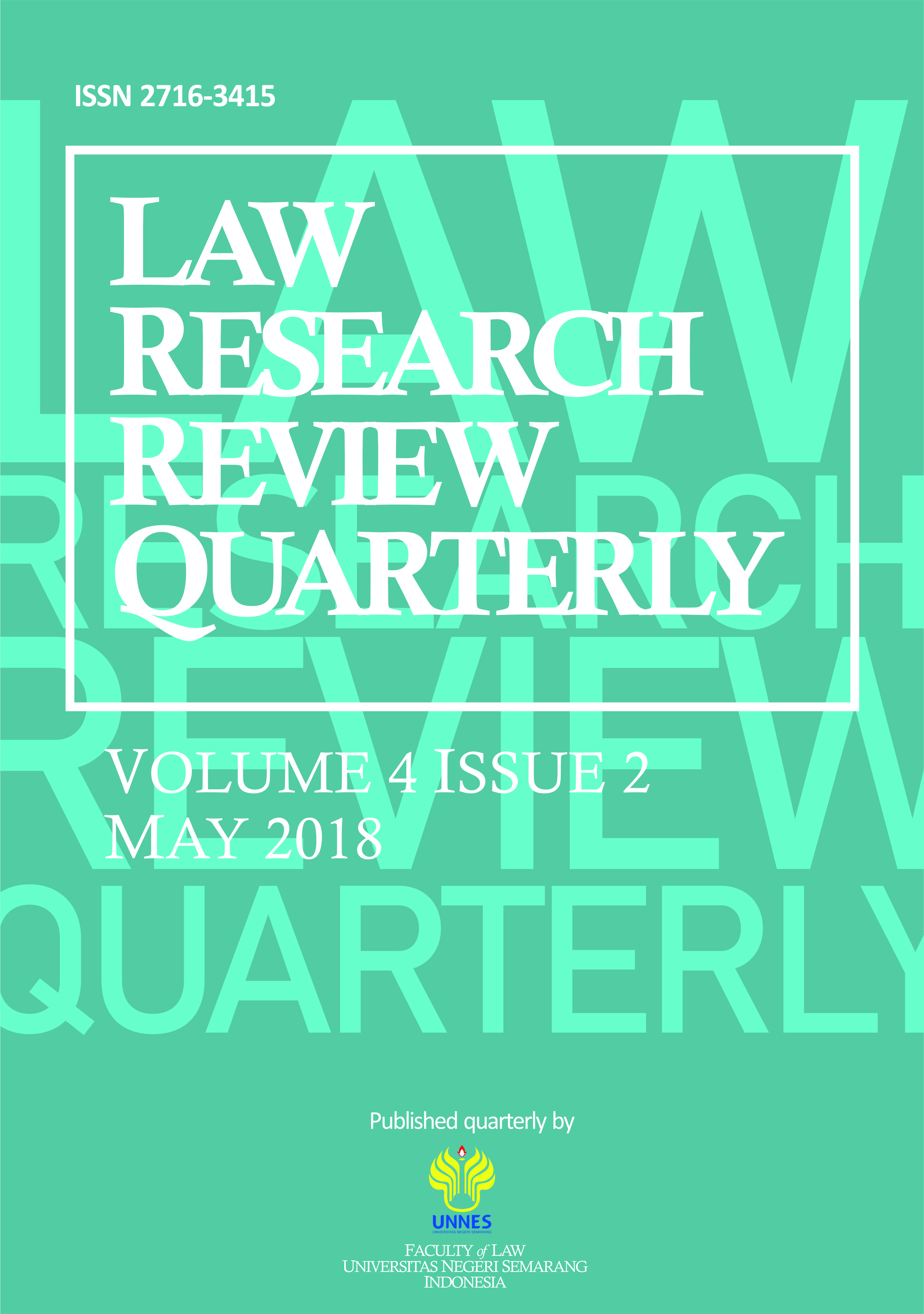Effectiveness of Election Special Judiciary Towards 2019 Presidential Election
Main Article Content
Abstract
Indonesia as a democratic country that implemented the electoral system since 1955. Caused the world of politics in Indonesia to become more mature. Democratic practices developed from the reform era to the present. The general election which is a means of democracy is not far from political deviations, one of which is the black campaign. Special election judiciary exists with the aim of protecting the constitutional rights of citizens in elections, provide legal space for those who have been harmed in the implementation of elections, get legal certainty in the life of a democratic country, and as an effort to accelerate the settlement of disputes or cases during the general election process. Democracy in Indonesia can now be said to be comparatively well established but actually has a fairly shaky foundation, where the power of the people who should be united from below is taken from above (Top-Down democracy consolidation). For this reason, a special election court exists to examine, hear and decide on certain cases which can only be established in one of the judicial bodies under the Supreme Court regulated in the law. Special election court is important to maintain stability in politics. The idea of ​​a Special Election Court is actually one of the most important components in the principles of election administration, namely "legal certainty".
Article Details
All writings published in this journal are personal views of the authors and do not represent the views of this journal and the author's affiliated institutions. Author(s) are retain the copyrights of the Article. However, before publishing, it is required to obtain written confirmation from Author(s) in order to ensure the originality (Author Statement of Originality). The statement is to be signed by at least one of the authors who have obtained the assent of the co-author(s) where applicable.This work licensed under a Creative Commons Attribution-ShareAlike 4.0 International (CC BY-SA 4.0)
References
Asshiddiqqie, Jimmly. (2006). Penghantar Ilmu Hukum Tata Negara Jilid II, Seketaris Jendral dan Kepaniteraan Mahkamah Konstitusi RI, Jakarta.
Miriam Budiarjo. (1990). “Hak Asasi Manusia Dalam Dimensi Global,â€, Jurnal Ilmu Politik, No. 10, 1990, hlm. 25-42
M. Gaffar. Janedjri, (2012). Politik Hukum Pemilu. Konstitusi Press (Konpress): Jakarta.
Mujiatun, M. (2017). “Permasalahan Hukum Terhadap Pelanggaran Pemiluâ€. Jurnal An-Nur. Vol. 01 No. 1, hlm. 52-64.
Ramlan Surbakti. dkk . (2011). Penanganan Sengketa Pemlu, Buku 16 Kemitraan Bagi Pembaruan Tata Pemerintahan: Jakarta
Saraswati, R. (2014). “Reorientasi Hukum Pemilukada yang Mensejahterakan Rakyatnyaâ€. Jurnal Dinamika Hukum. Vol. 14 No.2, hlm. 352-367.
Sigit Pamungkas. (2012). Pemilu, Perilaku Pemilih dan Kepartaian. Institute for Democracy and Welfarism: Yogyakarta.
Thaib, Dahlan. (1993). .Implementasi Sistem Ketatanegaraan Menurut UUD 1945. Liberty: Yogyakarta.
Tjenreng, M.B. Zubakhrum. (2016). Pilkada Serentak , Penguatan Demokrasi Di Indonesia.. Pustaka Kemang: Jakarta Depok.
Universitas Gadjah Mada. (1999). Demokratisasi Politik: Sumbangan Pikiran Universitas Gadjah Mada. UGM: Yogyakarta.
